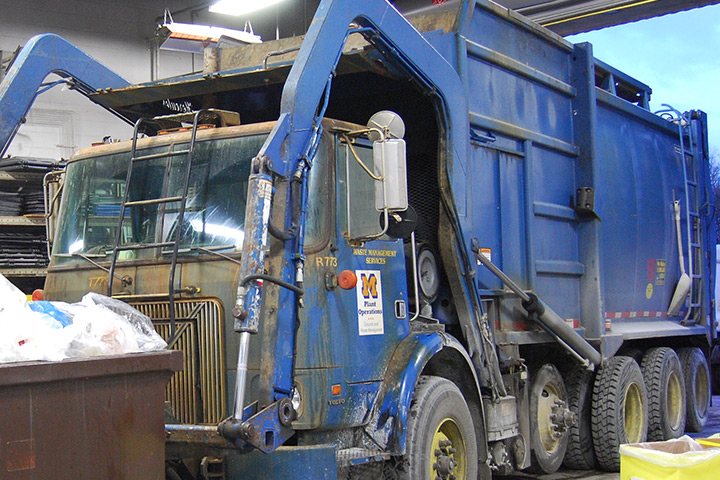An Apples-to-Electrons Comparison of Low-Carbon Transportation Options
An Apples-to-Electrons Comparison of Low-Carbon Transportation Options
An Apples-to-Electrons Comparison of Low-Carbon Transportation Options
Program: Catalyst Grants
Program details » | All Catalyst Grants projects »

(This project is currently underway)
Project team
André L. Boehman—U-M College of Engineering (PI)
Shelie Miller—U-M School for Environment and Sustainability (Co-I)
William McAllister—U-M Transportation and Waste Services
Scott Guenther—U-M Transportation and Waste Services
Samuel Moran—U-M Transportation and Waste Services
External partner: David Slade —Renewable Energy Group, Inc.
Project Summary
Renewable fuels have the potential to provide dramatic reductions in carbon footprint (>70%) quickly without requiring new infrastructure, mineral resource extraction, or carbon-intensive manufacturing. However, one major challenge to implementation is lack of end-user confidence in these fuels.
To address this barrier, this catalyst grant will fund the planning and implementation of a new demonstration that involves operating a North Campus refuse truck on 100% renewable fuel, in partnership with U-M Transportation and Waste Services. Heavy-duty trucks like the one used in this demonstration can’t easily be electrified, so alternative low-carbon options take on critical importance.
Through side-by-side analyses of fuel economy and vehicle performance of a refuse truck operating on diesel fuel and an identical refuse truck operating on 100% renewable fuel, U-M and other fleet operators will have access to a real-world comparison of ownership cost and GHG emissions reductions. The research team’s goal is to promote the expanded conversion of diesel vehicle fleets to operation on 100% renewable fuels.
“This project aligns with U-M strategic interests to support a transition to low carbon intensity transportation and will allow U-M to expand its understanding of the impacts of renewable fuels on our operations,” said William McAllister, General Manager, U-M Transportation and Waste Management Services.
In addition, U-M’s Department of Mechanical Engineering, in partnership with General Motors and the Top Tier fuel quality program, has an ongoing field vehicle demonstration of renewable diesel fuel operating a 2014 Chevy Cruze. A portion of the catalyst grant will be used to support the research team in thoroughly analyzing the GHG impacts of this demonstration using best-in-class lifecycle assessment methods.